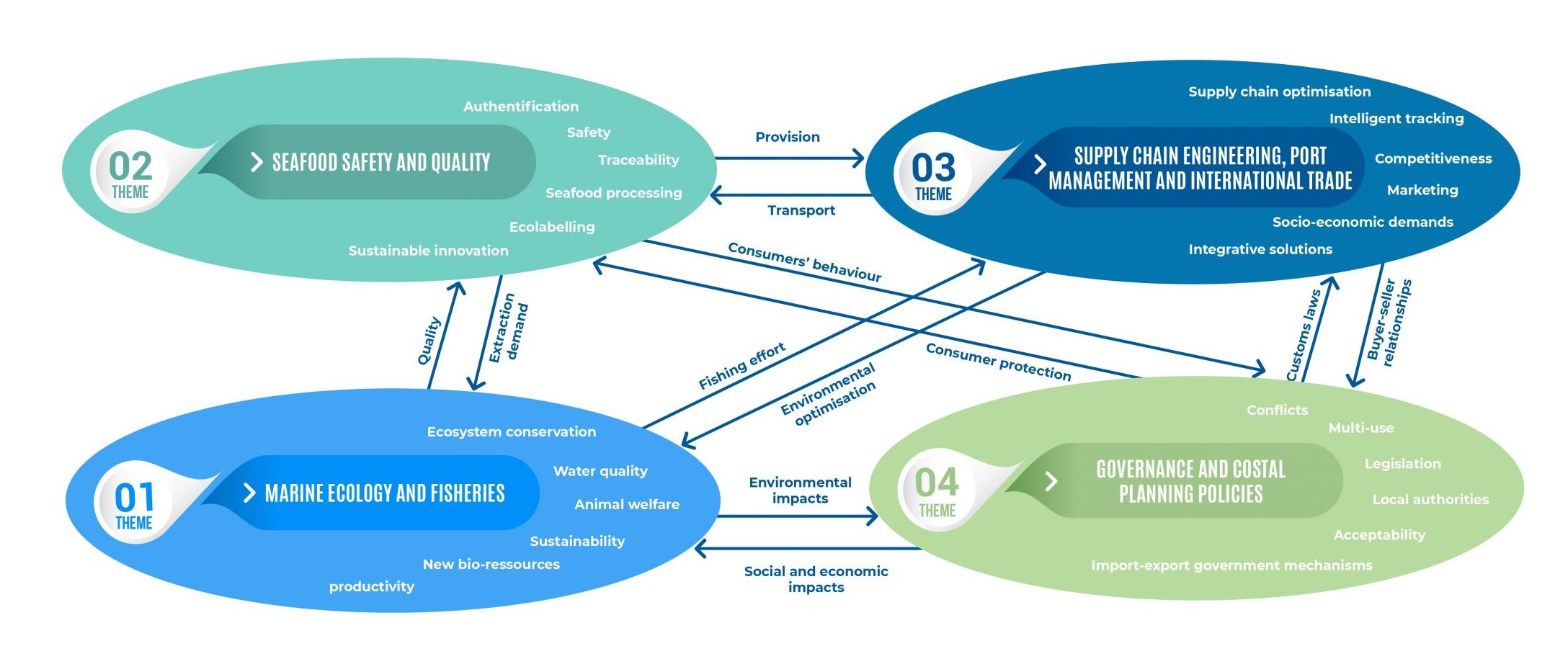IFSEA research is structured into four interconnected themes:

This research theme aims to gain knowledge of marine ecosystem biodiversity, from microbes to fish, and the processes that occur in the ecosystems, in order to preserve marine biodiversity, better understand ecosystem functioning, decipher the fine interactions that occur between species within the trophic networks and understand the feedback mechanisms between environmental forcing and biological processes in order to evaluate the resilience, stability and productivity of ecosystems and to provide guidance for fisheries and aquaculture management. A particular attention is given to developing innovative modelling frameworks for long-term forecasting of ecosystem functioning.
This research theme aims to develop innovative methodologies to monitor seawater quality as well as physicochemical and biochemical changes of seafood products along the chain of production, storage and distribution, to detect the alteration and to use alternative methods to fight antibiotic resistance and various contaminations. These actions are in support of public policy to set up more effective targeted controls in fisheries and aquaculture. Research activities dedicated to the valorisation of marine products and co-products in a sustainable and eco-designed way are also carried in this theme.
This research theme focuses on management and optimization of seafood supply chain as well as on international trade. It aims to better understand the interactions between stakeholders in the supply chain, to explore how physical and informational flows are structured and to diagnose dysfunctions and problems that should be addressed. Research carried in this theme combine qualitative and quantitative approaches to identify how the seafood supply chain can be made more efficient, resilient and environment friendly. It also addresses issues related to the sustainable trade practices among the different stakeholders involved in the seafood global supply chain with a focus on innovative orientations.
This research theme aims to study social habits and acceptability for the cumulative human activities, to understand how to bring out compromises that allow ecosystem and biodiversity conservation together with economic development and to propose a new governance of the marine and maritime domain in order to avoid conflicts between emerging activities and existing pressures. It addresses issue related to the characterization and resolution of the economic, management, cultural, environmental and political issues, from ecosystems to industries, from public policies to social demands.

